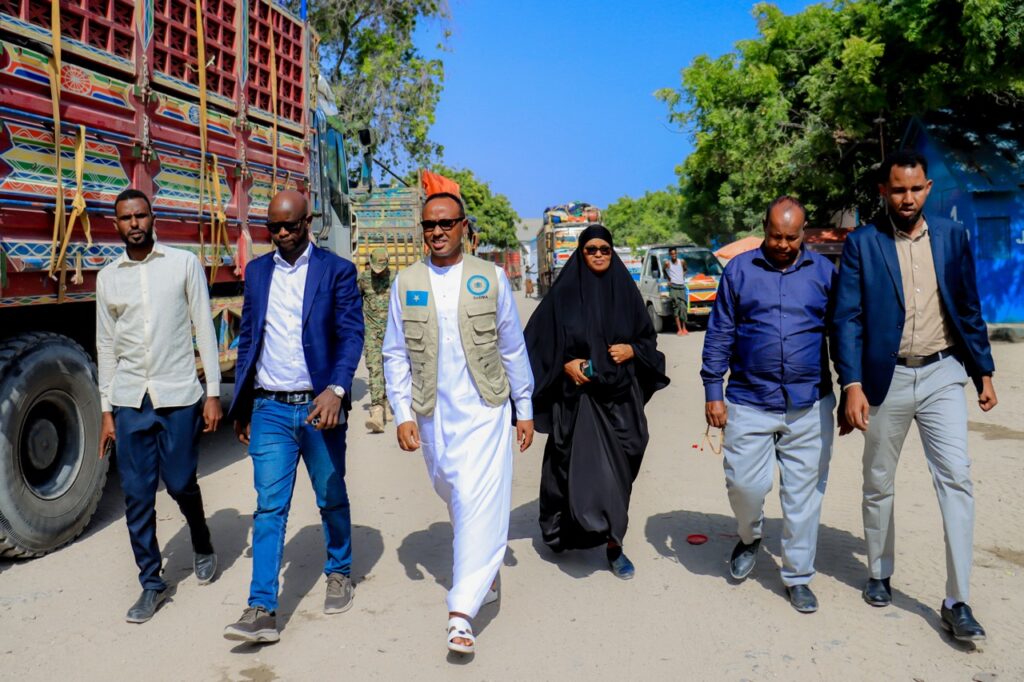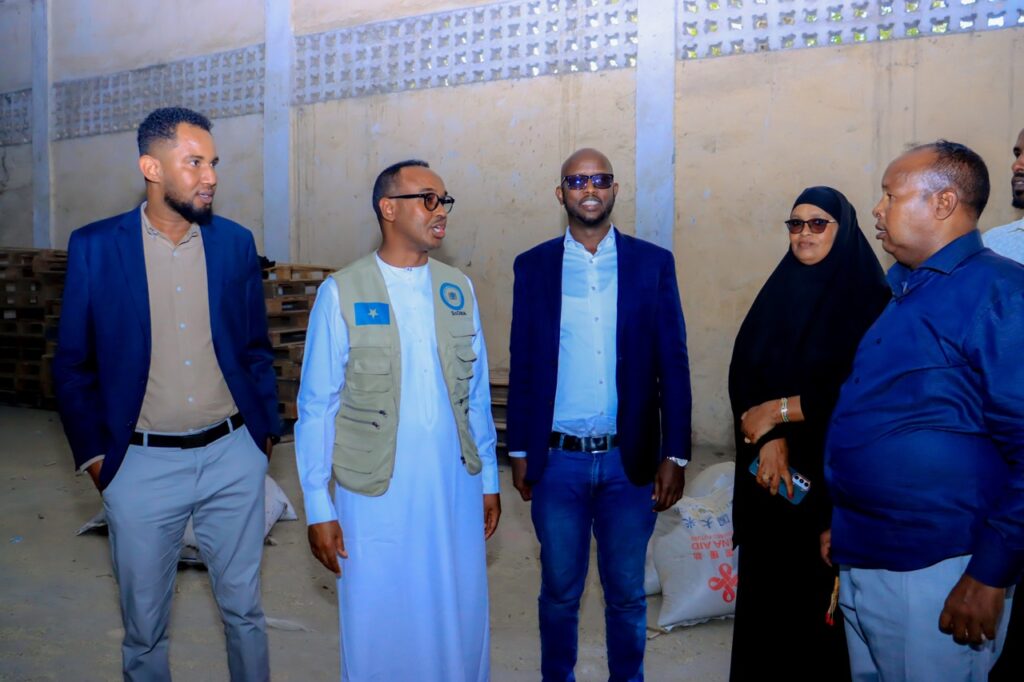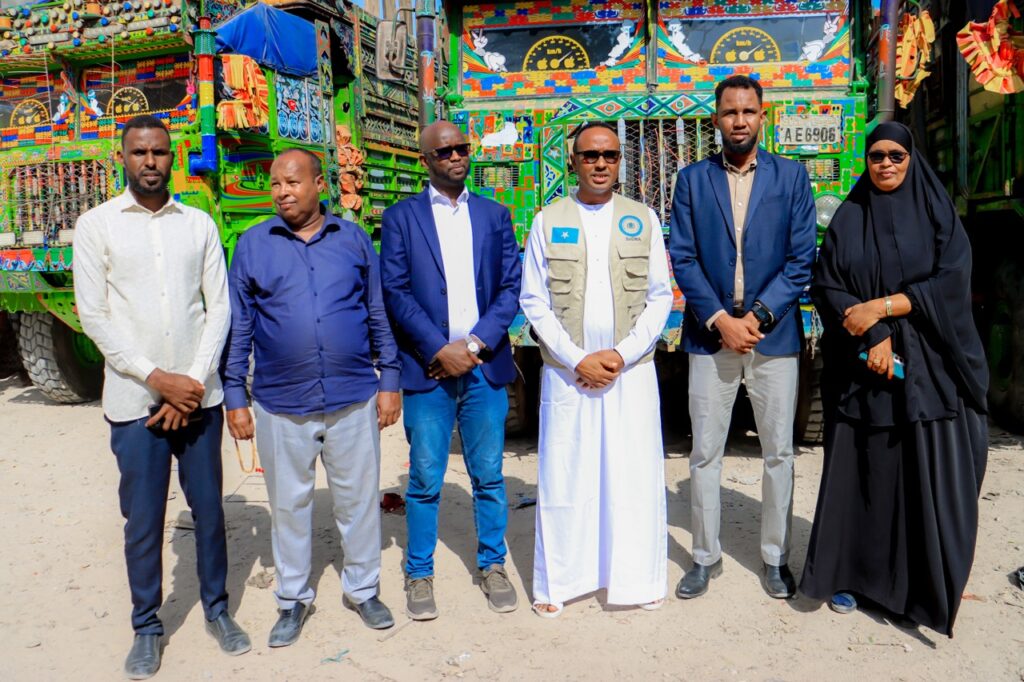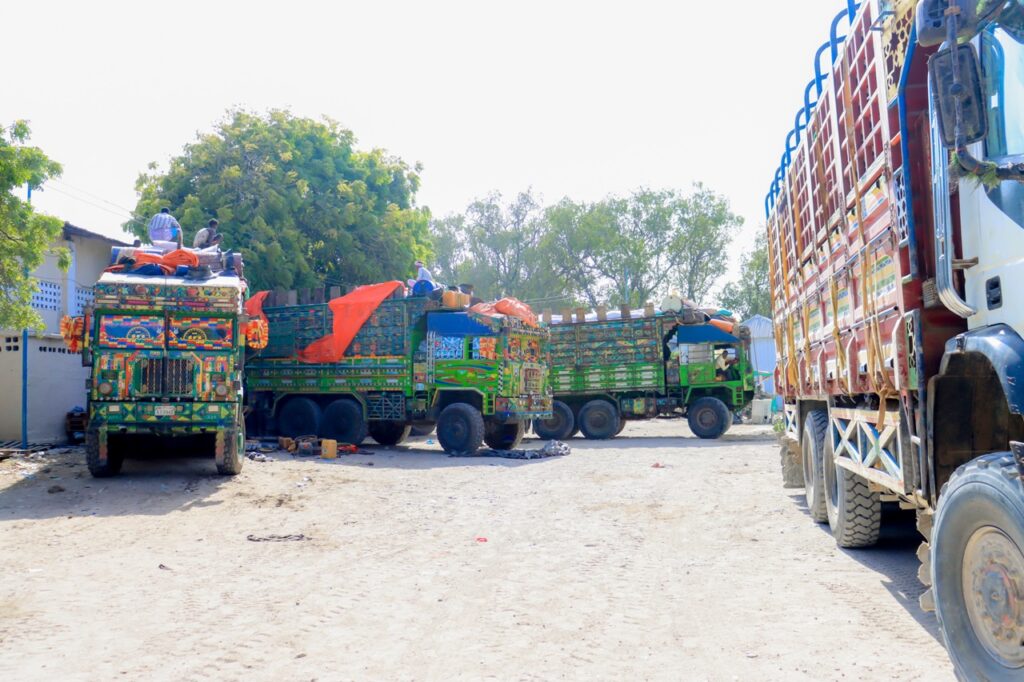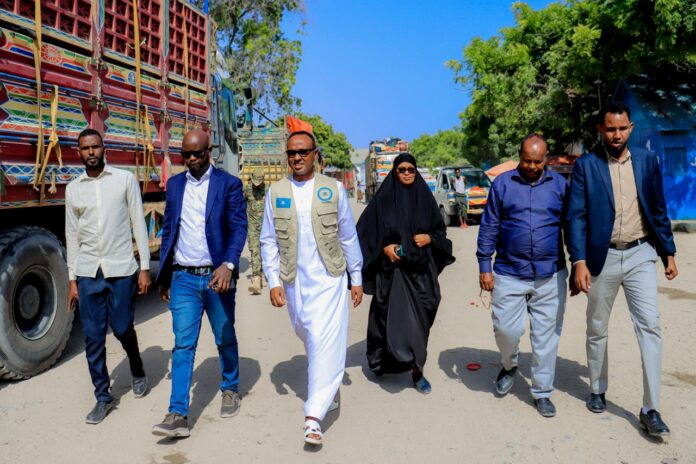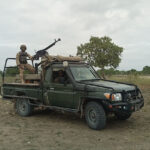MOGADISHU, Somalia – In a critical response to the escalating humanitarian needs, Mohamud Moalim, the Commissioner of the Somali Disaster Management Agency (SoDMA), officially handed over a substantial amount of relief supplies to the Deputy Minister of Galmudug Humanitarian Affairs.
This event took place in Mogadishu, marking a pivotal moment in the efforts to alleviate the suffering of over 13,000 families in one of Somalia’s most drought-affected regions.
The ceremony in Galmudug was attended by numerous high-ranking officials, including ministers from various departments, highlighting the urgency and collective commitment to the cause. The aid package includes essential items like food, water, medicine, and shelter materials, all desperately needed in areas where recent weather patterns have exacerbated existing challenges.
The delay of the deyr rainy season, traditionally spanning from September to November, has left many communities without the expected relief from drought conditions. This year’s anomaly has compounded issues stemming from previous weather events, putting additional strain on local resources and infrastructure.
Commissioner Moalim, during the handover, thanked the international community, specifically acknowledging the governments of China and Turkey for their generous support. “Their contributions have been vital in our fight against this crisis,” Moalim stated, emphasizing the importance of continued international aid.
He also made a direct appeal to the leaders and citizens of Galgaduud, a key region in Galmudug state, to work in unison to ensure the aid is distributed efficiently and transparently. “The effectiveness of this aid largely depends on our collective effort. We must all play our part to reach every individual in need,” Moalim urged.
This operation by SoDMA not only showcases the government’s commitment to tackling the humanitarian crisis but also underscores the necessity for sustained international support to combat the effects of climate variability in Somalia.
The focus now shifts to the logistics of distribution, ensuring that the relief reaches those isolated by the harsh conditions, providing hope where it’s needed most.
